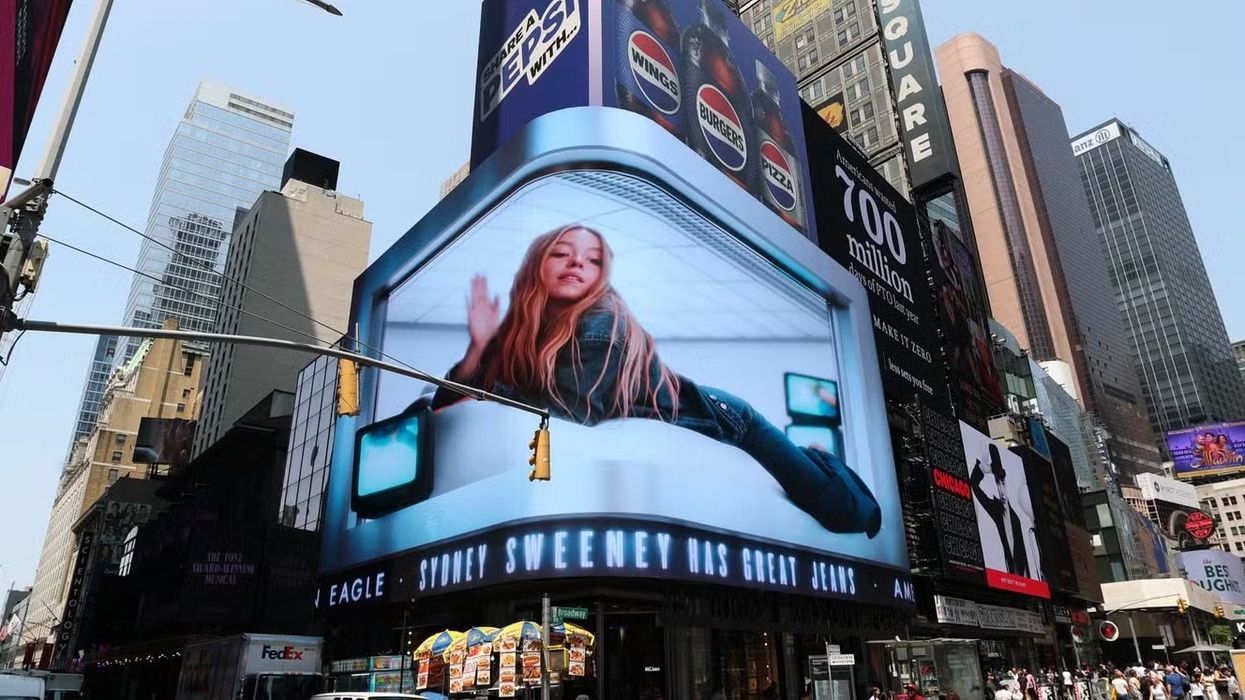What began as a denim campaign has morphed into a political spectacle, with far-right groups, conservative commentators, and progressive critics all weighing in on Sydney Sweeney’s American Eagle ad. The slogan—“Sydney Sweeney has great jeans”—was interpreted by many as a pun on “genes,” sparking accusations of racial messaging and white supremacist undertones.
- YouTube youtu.be
Launched on July 23, the campaign features Sweeney—known for her roles in Euphoria and The White Lotus—posing in denim, working on a car, and narrating lines like:
“Genes are passed down from parents to offspring, often determining traits like hair color, personality, and even eye color. My jeans are blue.”
The pun on “genes” and “jeans” was intended to highlight fashion, but critics quickly accused the ad of echoing eugenics-era rhetoric, especially given Sweeney’s blonde hair and blue eyes.
President Donald Trump was quick to praise the ad and Sweeney’s political affiliation:
“If Sydney Sweeney is a registered Republican, I think the ad is fantastic,” he said before boarding Marine One.
He later posted on Truth Social (before deleting it):
“Jeans flying off the shelves. HOTTEST ad out there. Go get ’em Sydney!”
The Proud Boys, a far-right extremist group, allegedly escalated the controversy by vandalizing an American Eagle billboard in Los Angeles with the message:
“Proud Boys love Sydney Sweeney. She has the best blue genes.”
Critics on the left have accused the ad of subtly promoting eugenicist ideals. CNN questioned whether American Eagle had created a “scary white-supremacist dog-whistle ad”.
MSNBC columnist Katelyn Burns argued:“
The ad is just vague enough to be deniable, yet it gives the right an opportunity to paint leftists as out-of-touch and cancel-hungry.”
American Eagle responded on August 1 with a statement: “‘Sydney Sweeney Has Great Jeans’ is and always was about the jeans. Her jeans. Her story. We’ll continue to celebrate how everyone wears their AE jeans with confidence, their way.” Despite the backlash, the campaign has driven a surge in sales and stock prices, suggesting that controversy may have boosted brand visibility.
Some media analysts suggest Sweeney may be leveraging outrage as part of a broader publicity strategy. As one article put it: “Sweeney’s ability to become a focal point of controversy—including drawing comments from Trump—demonstrates a calculated grasp of public influence.”
Rolling Stone traced her political associations back to a 2022 family party where guests wore MAGA-style hats and Blue Lives Matter shirts. Sweeney responded at the time: “Please stop making assumptions… The people in the pictures weren’t even my family.”
This controversy isn’t just about jeans—it’s about how beauty, whiteness, and political affiliation are commodified in American media. Sweeney’s silence amid the storm has only fueled speculation.
As denim becomes the unlikely battleground for political discourse, the “Great Jeans” saga underscores how even fashion ads can become lightning rods for deeper societal tensions.
Hugo Balta is the executive editor of the Fulcrum and the publisher of the Latino News Network.




















Trump & Hegseth gave Mark Kelly a huge 2028 gift